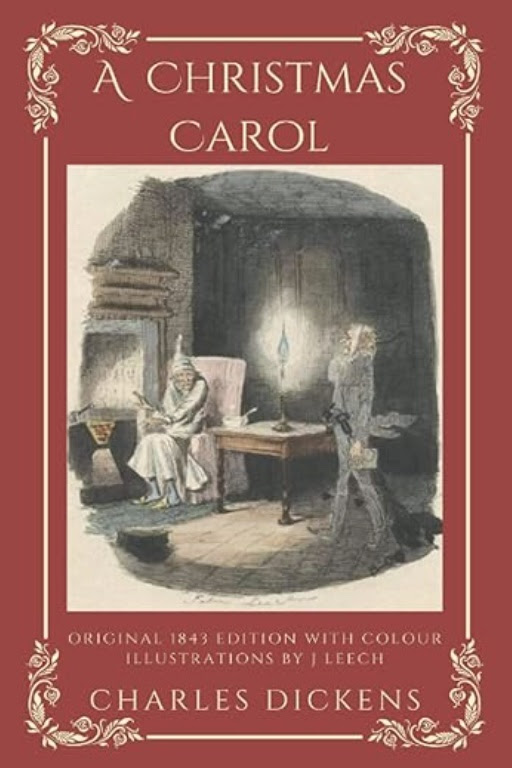Did Ebenezer Scrooge Become Enlightened on Christmas Eve?
As Westerners, we're familiar with the plot - (n.) the cause-and-effect relationship between events in a story - of Charles Dickens's "A Christmas Carol", but to what degree do we understand some deep Buddhist teachings through the transformation of its main character, Ebenezer Scrooge?
 |
The novel begins with Scrooge being "a cold-hearted miser", a stingy, tight-fisted, unpleasant man who does not care for anyone and is only interested in money and wealth.
On a night like last night, Christmas Eve, he is visited by the ghost of his deceased business partner, Jacob Marley, wrapped and weighed down by heavy chains and money boxes symbolising greed and selfishness. Marley warns Scrooge that he must change and show penance, and warns him that three Spirits will visit and offer him the chance of reforming in order to escape the same fate.
The Ghost of Christmas Past visits first, and we learn of Scrooge's circumstances when he was younger, and how he became the disagreeable man that he is at that point. The Ghost of Christmas Present shows Scrooge what he is missing by being so unfriendly and reclusive.
But it is the Ghost of Christmas Future that has the deepest lessons for Scrooge as it points towards him dying alone at his house with no one to mourn or remember him kindly. This is where Scrooge has a transformational revelation:
“I will honour Christmas in my heart, and try to keep it all the year. I will live in the Past, the Present, and the Future. The Spirits of all Three shall strive within me. I will not shut out the lessons that they teach.”
After this, Scrooge keeps his word and becomes a different man, a charitable, compassionate and understanding one. He makes amends, reconciles with his nephew, doubles Bob Cratchit's salary and improves his working conditions, and becomes an outstanding, cherished member of society.
And what does this have to do with "enlightenment", you might ask? The answer is: a lot! Although Charles Dickens lived during the Victorian era, he was influenced by the Enlightenment, a European intellectual movement of the 17th and 18th centuries in which ideas concerning God, reason, nature, and humanity were synthesised into a worldview that gained wide assent in the West and that instigated revolutionary developments in art, philosophy, and politics.
In Buddhism, to be "enlightened" involves understanding that the past is contained in the present, and the future is made of the present as well. We might be unable to change what happened in the past, but we have agency in the way we deal with the present. If we are unable to be happy and joyful, if we cannot be grateful and appreciative of all the favourable conditions that support our life today, we will probably not find many things to be grateful for and appreciative of in the future either.
So what are you grateful for this Christmas Eve?
 |
Whether you're Christian, Buddhist, or not, let's take a few moments to reflect on everything we're thankful for, and everything that brings us joy today.
MERRY CHRISTMAS!
And remember that Confident English Training's English Through Literature launches in January 2025!
Stay tuned for more!



Comments
Post a Comment